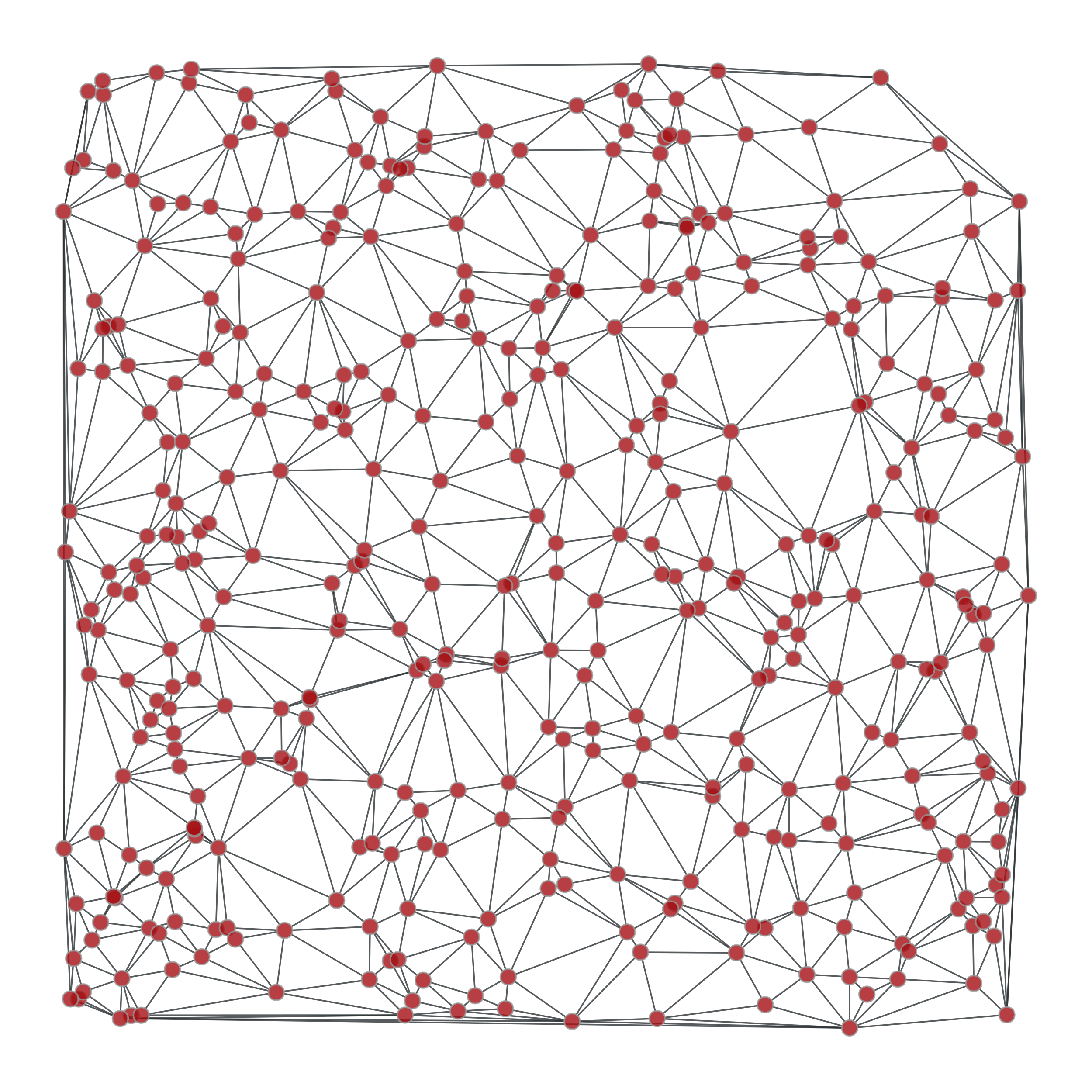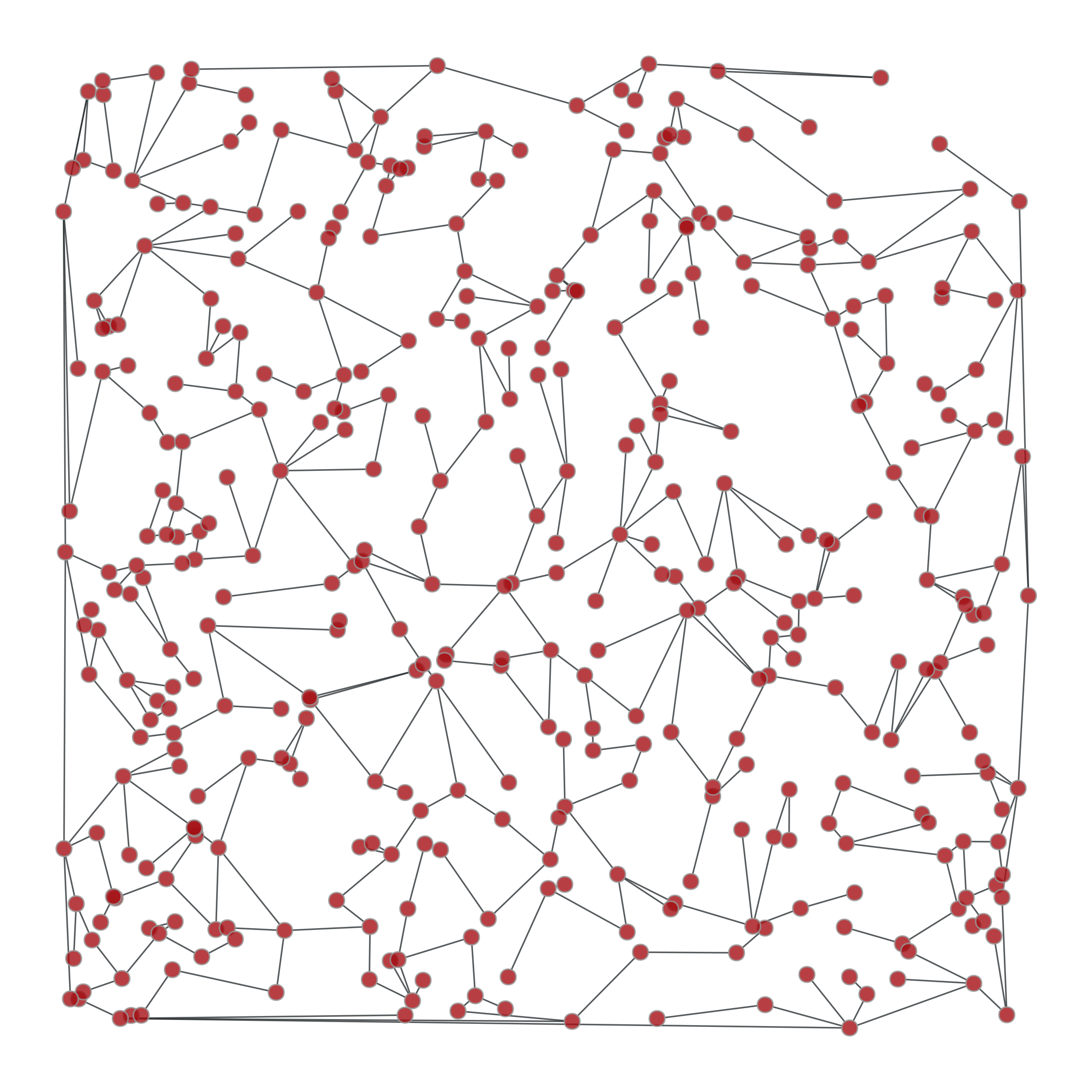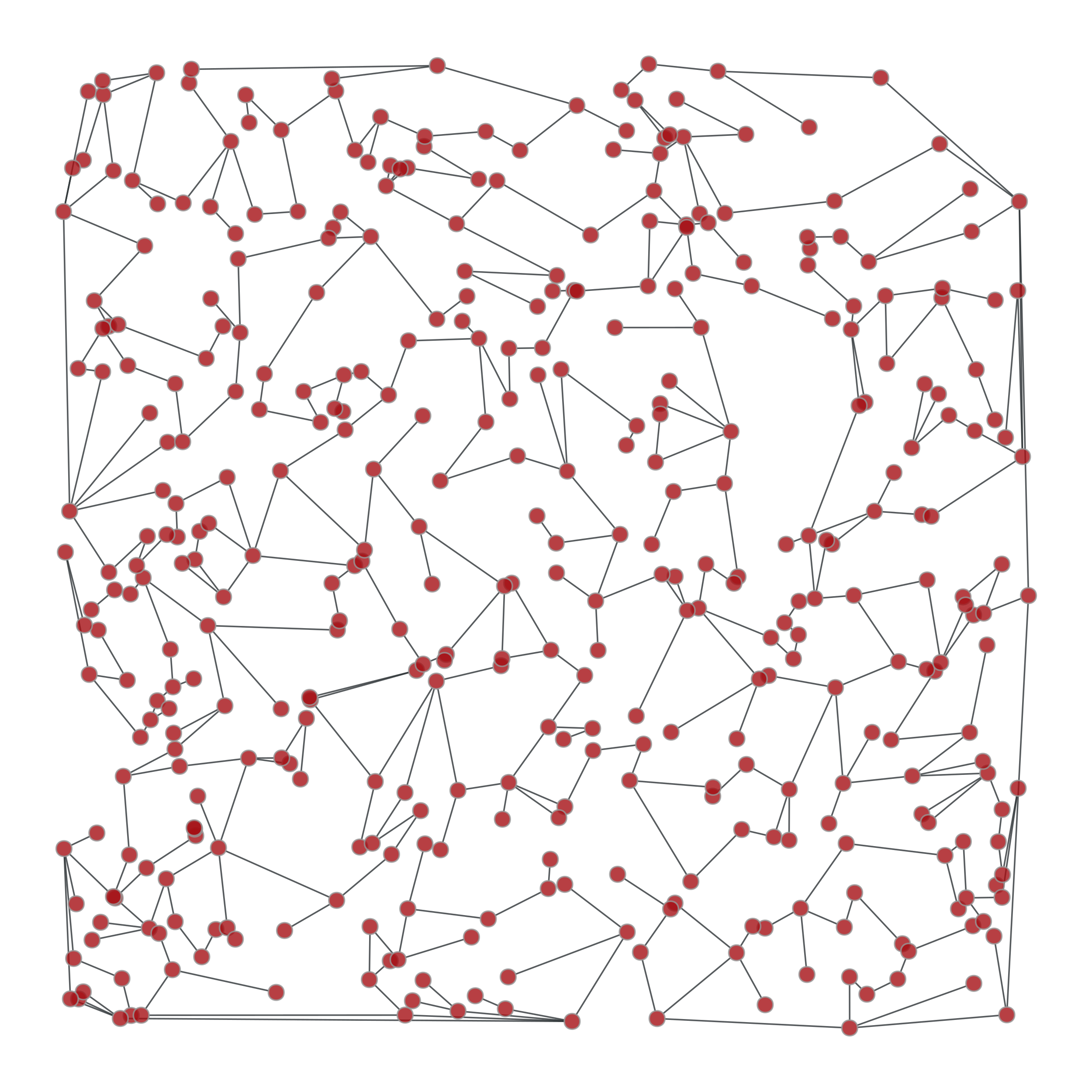random_spanning_tree#
- graph_tool.topology.random_spanning_tree(g, weights=None, root=None, tree_map=None)[source]#
Return a random spanning tree of a given graph, which can be directed or undirected.
- Parameters:
- g
Graph Graph to be used.
- weights
EdgePropertyMap(optional, default: None) The edge weights. If provided, the probability of a particular spanning tree being selected is the product of its edge weights.
- root
Vertex(optional, default: None) Root of the spanning tree. If not provided, it will be selected randomly.
- tree_map
EdgePropertyMap(optional, default: None) If provided, the edge tree map will be written in this property map.
- g
- Returns:
- tree_map
EdgePropertyMap Edge property map with mark the tree edges: 1 for tree edge, 0 otherwise.
- tree_map
Notes
The running time for this algorithm is \(O(\tau)\), with \(\tau\) being the mean hitting time of a random walk on the graph. In the worst case, we have \(\tau \sim O(V^3)\), with \(V\) being the number of vertices in the graph. However, in much more typical cases (e.g. sparse random graphs) the running time is simply \(O(V)\).
References
[wilson-generating-1996]David Bruce Wilson, “Generating random spanning trees more quickly than the cover time”, Proceedings of the twenty-eighth annual ACM symposium on Theory of computing, Pages 296-303, ACM New York, 1996, DOI: 10.1145/237814.237880 [sci-hub, @tor]
Examples
>>> from numpy.random import random >>> g, pos = gt.triangulation(random((400, 2)), type="delaunay") >>> weight = g.new_edge_property("double") >>> for e in g.edges(): ... weight[e] = linalg.norm(pos[e.target()].a - pos[e.source()].a) >>> tree = gt.random_spanning_tree(g, weights=weight) >>> tree2 = gt.random_spanning_tree(g, weights=weight) >>> gt.graph_draw(g, pos=pos, output="rtriang_orig.pdf") <...> >>> u = gt.GraphView(g, efilt=tree) >>> gt.graph_draw(u, pos=pos, output="triang_random_span_tree.pdf") <...> >>> u2 = gt.GraphView(g, efilt=tree2) >>> gt.graph_draw(u2, pos=pos, output="triang_random_span_tree2.pdf") <...>



Left: Original graph, Middle: A random spanning tree, Right: Another random spanning tree